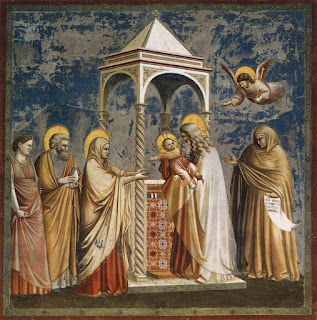Good morning everyone,
On many occasions during his public life, Jesus challenged the established authority in an attempt to show his hearers and followers that there is another way to live, a new way that is not based on power and prestige but rather on the simple joy of living. Jesus used all kinds of examples, including the Jewish dietary laws, to make his point.
In today's gospel passage, Jesus explains to his hearers: Nothing that enters someone from outside can defile that person; but the things that come out from within are what defile (Mk 7:15). In this way, Jesus wanted to make a point, not by contradicting the Law of Moses which had defined the concept of living kosher (Lv 11), but by pointing out that it is attitudes and behaviours, what comes out of a man that defiles him (Mk 7:20).
Jesus' primary concern was that the children of God should recognize God's love for them and their primary innocence in His eyes ... and then that they should live in the light of this love by loving others. Unfortunately, if they are allowed to run rampant, human tendencies alone will blind us to this fact and will focus our attention more and more on egocentric ends. Jesus cautions us against becoming too focused on ourselves, lest we fall victim to the sins of murder, adultery, greed, malice, deceit, licentiousness, envy, blasphemy, arrogance, and folly (Mk 7:21-22).
Every day, we have another chance to live our faith, so today, ask Jesus to help us all be aware of the traps that keep us focused on ourselves and our own desires. Instead of being defiled by self-serving behaviour, ask Him to help us to be outward-focused so that we can identify the needs of others and be courageous enough to make a difference.
Have a great day.
On many occasions during his public life, Jesus challenged the established authority in an attempt to show his hearers and followers that there is another way to live, a new way that is not based on power and prestige but rather on the simple joy of living. Jesus used all kinds of examples, including the Jewish dietary laws, to make his point.
In today's gospel passage, Jesus explains to his hearers: Nothing that enters someone from outside can defile that person; but the things that come out from within are what defile (Mk 7:15). In this way, Jesus wanted to make a point, not by contradicting the Law of Moses which had defined the concept of living kosher (Lv 11), but by pointing out that it is attitudes and behaviours, what comes out of a man that defiles him (Mk 7:20).
Jesus' primary concern was that the children of God should recognize God's love for them and their primary innocence in His eyes ... and then that they should live in the light of this love by loving others. Unfortunately, if they are allowed to run rampant, human tendencies alone will blind us to this fact and will focus our attention more and more on egocentric ends. Jesus cautions us against becoming too focused on ourselves, lest we fall victim to the sins of murder, adultery, greed, malice, deceit, licentiousness, envy, blasphemy, arrogance, and folly (Mk 7:21-22).
Every day, we have another chance to live our faith, so today, ask Jesus to help us all be aware of the traps that keep us focused on ourselves and our own desires. Instead of being defiled by self-serving behaviour, ask Him to help us to be outward-focused so that we can identify the needs of others and be courageous enough to make a difference.
Have a great day.






